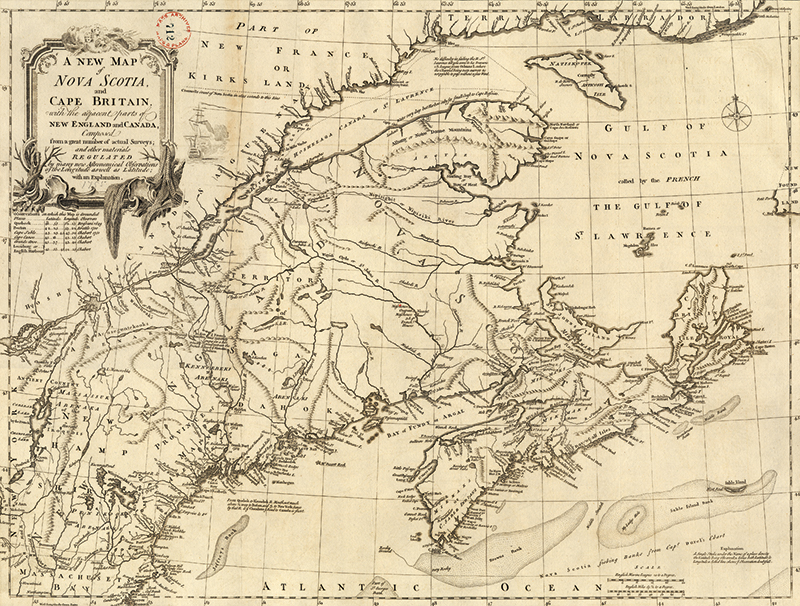Once encompassing present-day Nova Scotia, Prince Edward Island, New Brunswick, and parts of southern Quebec, Acadia was a region of persistent conflict.
Claims by John Cabot for the English in 1498 and Jacques Cartier for the French in 1534 served as the basis for continued struggle over this territory. Possession of the area, primarily settled by the French, shifted regularly, being ceded to the French in the Treaty of Breda (1667) and the English in the Treaty of Utrecht (1713). Although Louisbourg was captured by the English in 1745, it was returned to the French in the Treaty of Aix-La-Chapelle (1748), while the English maintained control of the colony overall, which they called Nova Scotia.

Acadia, or Nova Scotia, as it appeared in 1755
Also, That the said King of Great Britain do likewise restore unto the said Most Christian King, or unto such as to that purpose shall receive his Command duely passed under the Great Seal of France, the Country which is called Acadia, lying in North-America, which the said Most Christian King did formerly enjoy: And to that end the said King of Great Britain shall immediately upon the ratification of this Agreement, deliver or cause to be delivered unto the said Most Christian King, or such Ministers of his as shall be thereunto appointed, all Instruments and Orders duely dispatched, which shall be necessary to the said Restitution
”This treaty guaranteed France dominion over Acadia following the Second Anglo-Dutch War (1665–1667)
The most Christian King shall take care to have delivered to the Queen of Great Britain, on the same day that the ratifications of this treaty shall be exchanged, solemn and authentic letters, or instruments, by virtue whereof it shall appear, that the island of St. Christopher's is to be possessed alone hereafter by British subjects, likewise all Nova Scotia or Acadia
”The article shown here ceded possession of Acadia or Nova Scotia to Great Britain as a result of Queen Anne’s War (1702-1713). Cape Breton Island, originally part of Acadia, was left to the French.
